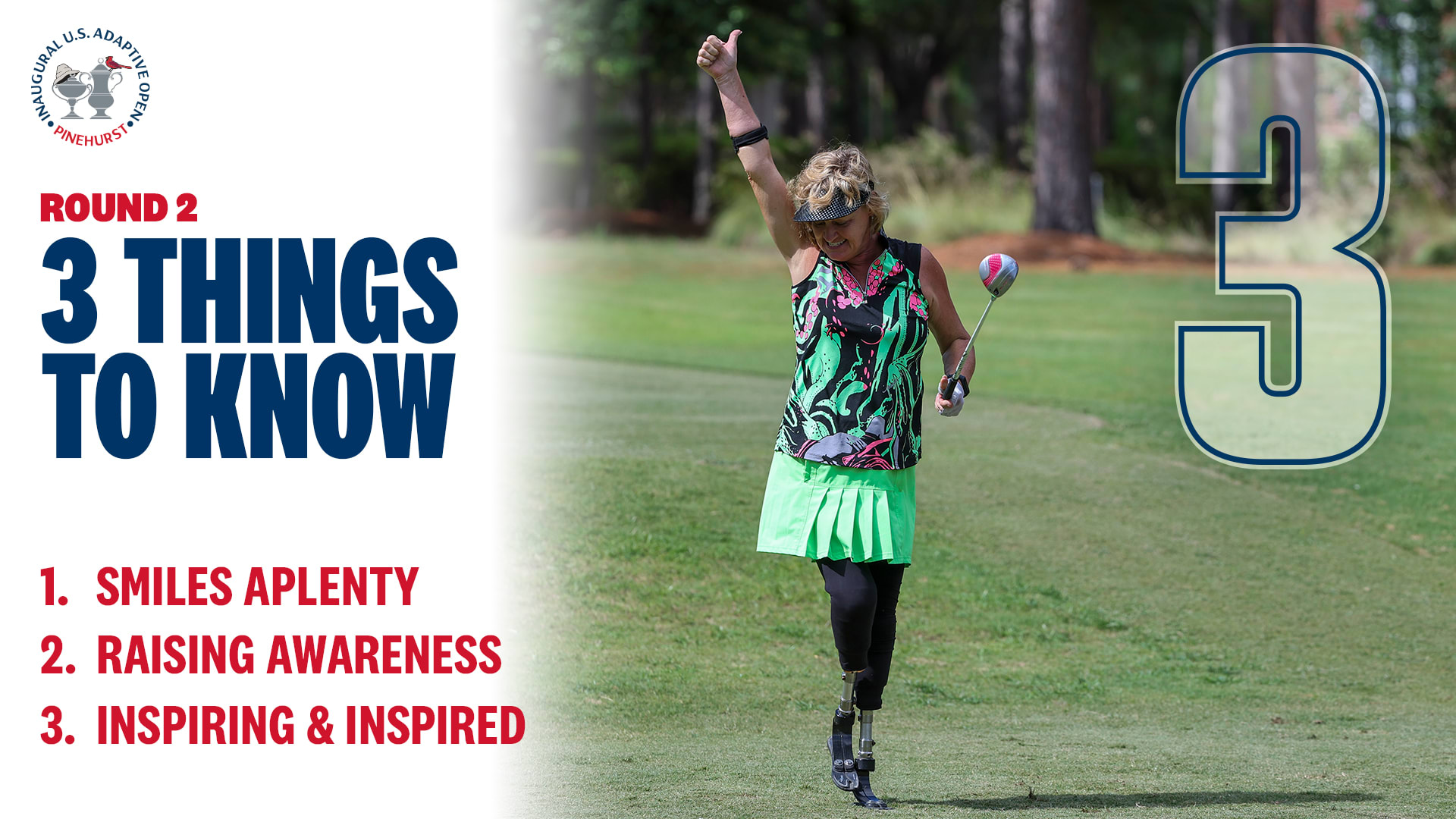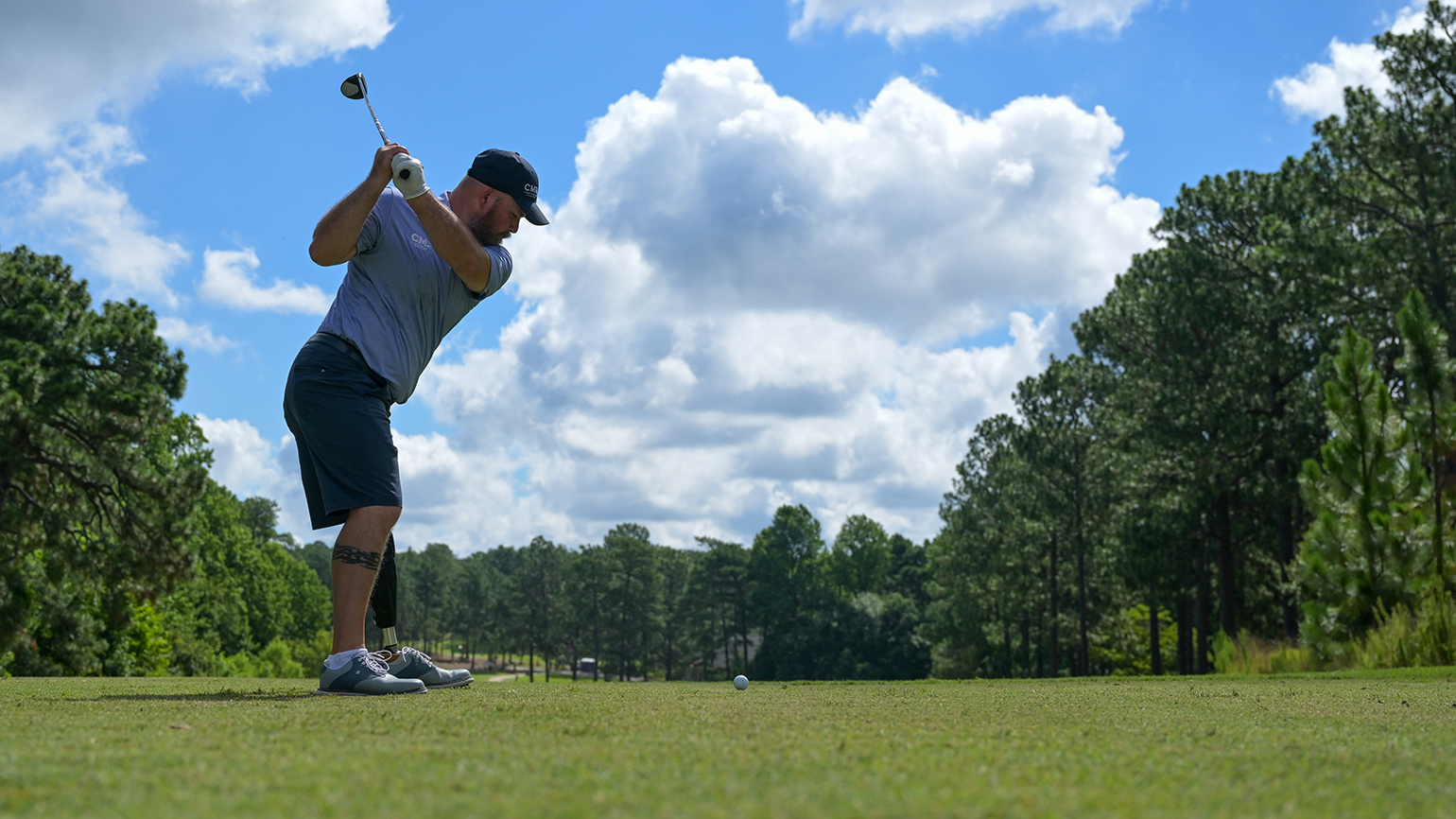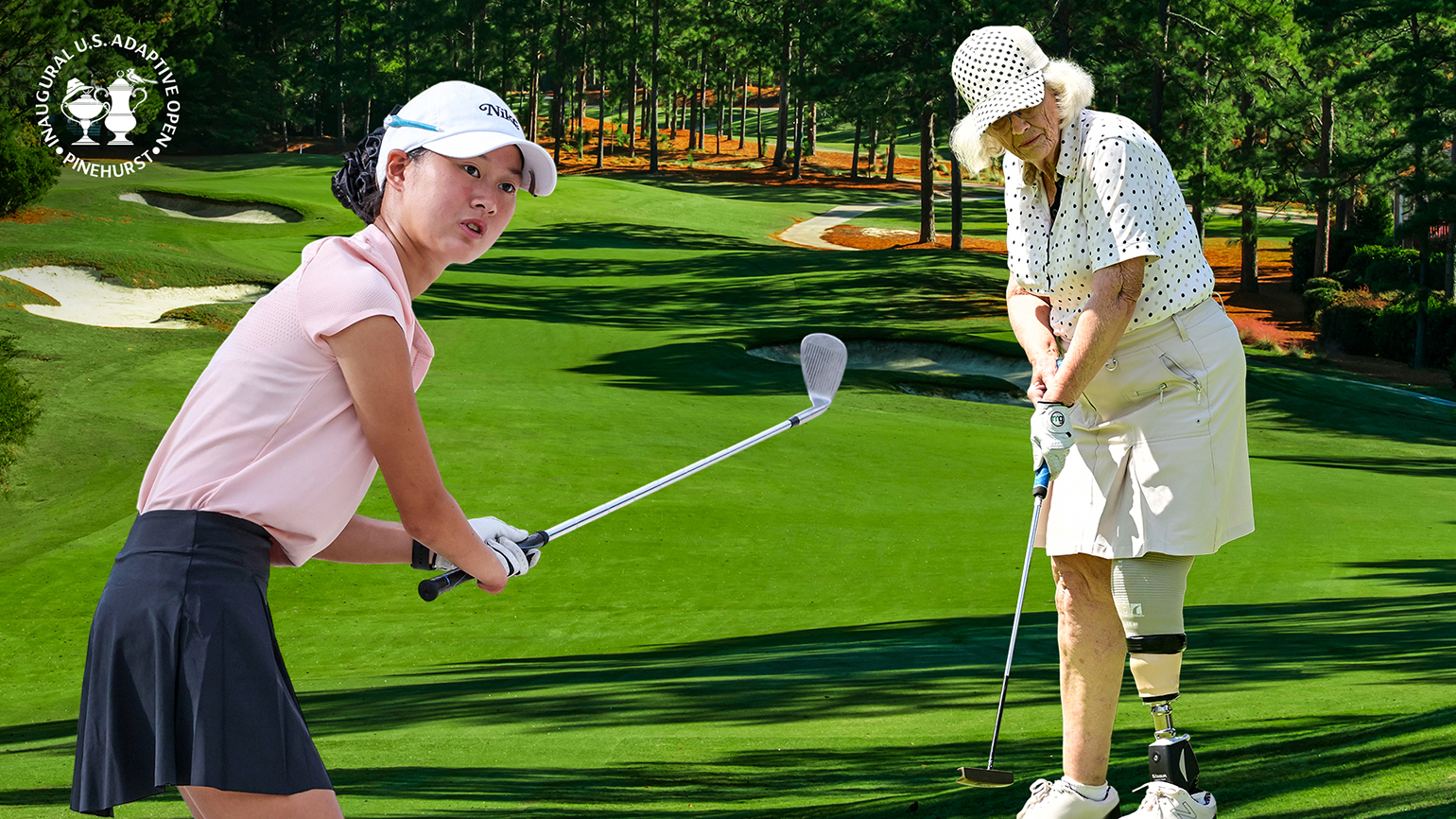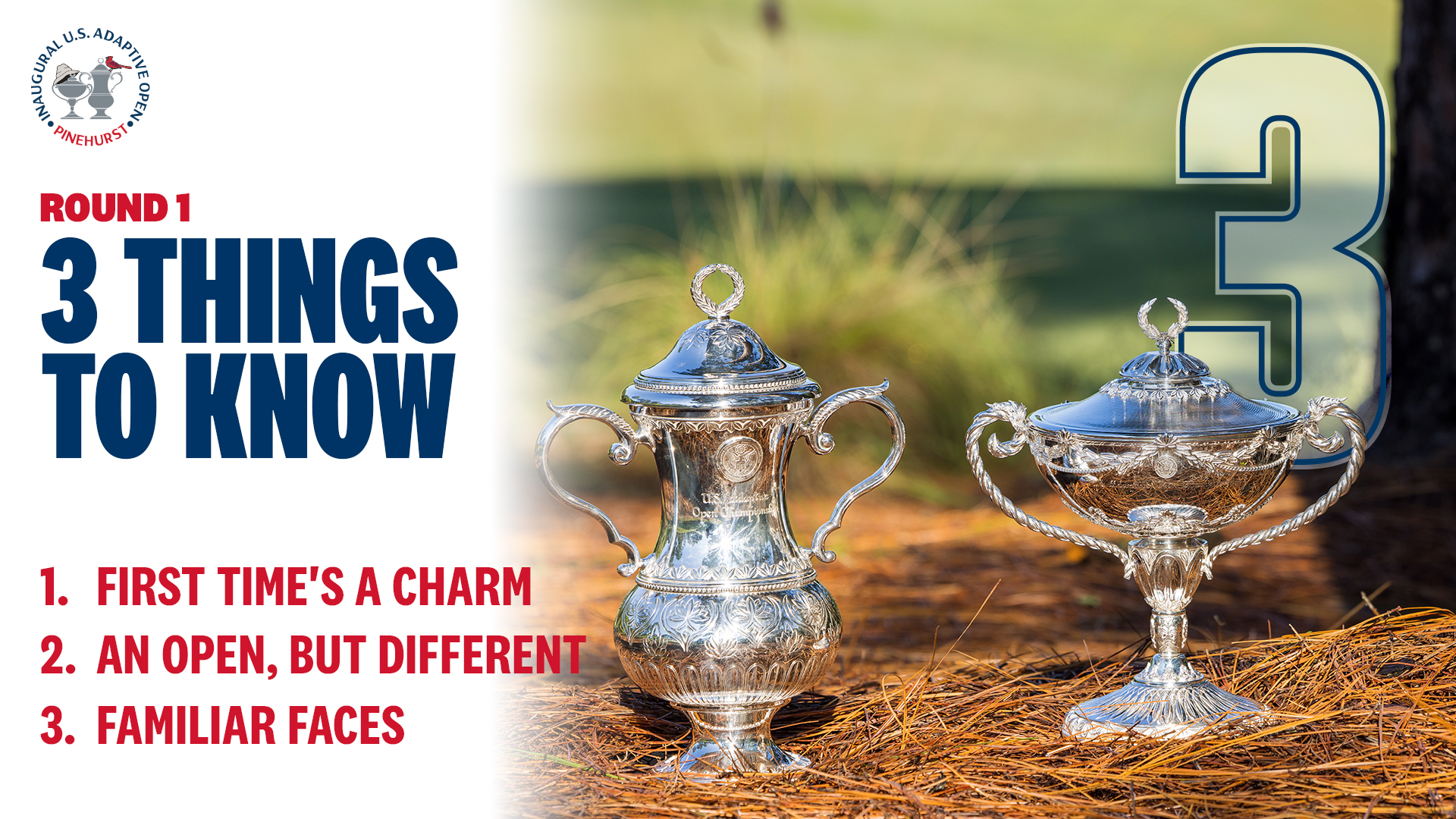U.S. Adaptive Open Home | Men's Scoring | Women's Scoring
The 96 competitors in the inaugural U.S. Adaptive Open all experienced the newness of the championship on Course No. 6 at Pinehurst Resort, accompanied by supporters, volunteers and officials. On Tuesday, the jitters past, they will play Round 2 as the chases for the two trophies and the leading positions in the eight impairment categories come into clearer focus.
Here are 3 Things to Know about the continuing storylines of this fledgling USGA championship as it moves past the halfway point.
Smiles Aplenty
After the flag was raised and Grace Anne Braxton of Fredericksburg, Va., hit the first shot of the championship, game faces were replaced – at least momentarily – by smiles all around, even among those who were continuing to prepare for their rounds. It was really happening.
“I feel like we exceeded every expectation,” said Stephanie Parel, the championship director. “Everyone was excited to get started today: the players, the volunteers, the Rules officials and the people who came out to watch – plenty of joy in every direction.”
For some players, there was additional significance to their presence in the field. “It’s a pretty big honor to be the only Canadian woman here,” said Natasha Stasiuk. “It’s been a big dream; I’m just trying to represent my country and have fun with all the people.”
Kurtis Barkley, a fellow Canadian, said, “I can’t believe we’re here at Pinehurst. It’s amazing that we get to play in this atmosphere, and to come and represent your entire country.”
Raising Awareness
Annie Hayes, 59, of Lee, Mass., is a librarian who competes as a seated player after being paralyzed from the waist down in a mountain biking accident 15 years ago. Hayes carries a 23.7 Handicap Index® and opened with a 26-over-par 98. She also has an eye trained on the bigger picture. “This is so important for the future of adaptive golf, because I think it’s going to be an impetus for more courses to realize that there are disabled players out there who can really play,” said Hayes. “Maybe they’ll make some adjustments and make the courses a little more handicapped friendly, disabled friendly. Hopefully it’s an impetus for that. But I think it’s a great start.”
Inspiring and Inspired
Like all of the players in the field, Kipp Popert, who shot 2-over-par 74 on Monday, is an inspiring presence in the game. Popert, 24, was diagnosed with cerebral palsy at birth and has undergone several surgeries on the way to becoming one of the world’s best adaptive golfers, but he gleans plenty of inspiration from his fellow competitors as well.
“Just being at the dinner [Sunday night], in a room where everyone has used golf to help them and to finally have our championship, it’s awesome,” said Popert, of England. “For the kids growing up, it’s only going to spur them on. Also, I played with [Willy Ray Pease] today, and some of the shots he hit – he’s blind and he holed a 40-footer. He’s a real inspiration and an awesome guy.”
Trevor Stephens, of Greenwich, Conn., who is competing in his first adaptive event, has had his eyes opened by the awareness of the championship. “Just from my network, I have people that I haven’t spoken to in quite some time reaching out, cheering me on, and sending me stories about other people. It absolutely will expand the game.”
Ron Driscoll is the senior manager of content for the USGA. Email him at rdriscoll@usga.org.
RELATED
USGA Partners




